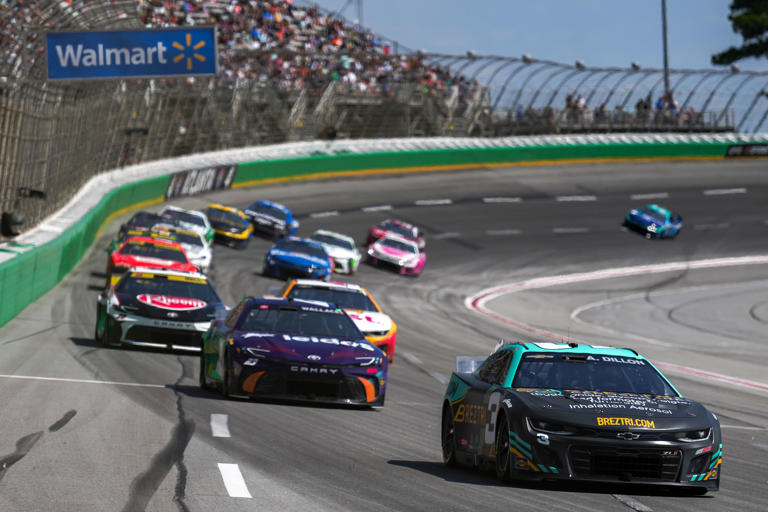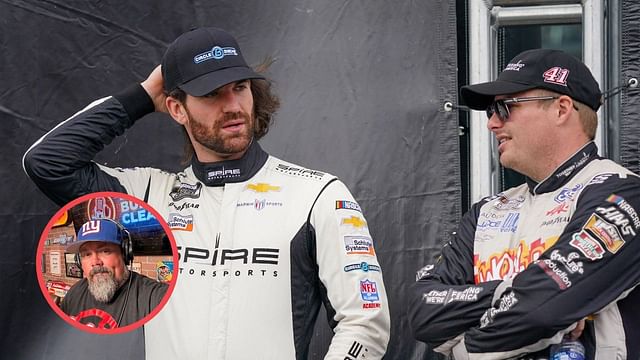NASCAR has faced considerable tension with its teams over the charter agreement, which has led to some teams, notably 23XI Racing and Front Row Motorsports, retracting their support. Despite this friction, NASCAR has made attempts to address and improve the financial arrangements for the teams involved.
The charter negotiations between NASCAR and the teams have revolved around four main objectives. Firstly, the teams have sought a substantial increase in their share of the revenue generated. Secondly, they have pushed for a role in governance decisions that impact the sport. Thirdly, the teams want a stake in business agreements that involve their team or driver likenesses. Lastly, they have advocated for the establishment of permanent charters to ensure long-term stability and security.
One of the central issues in these negotiations has been the permanence of the charters. Although the current agreement does not grant permanent charters, the issue of revenue sharing appears to have been addressed. NASCAR’s media rights agreements have seen a significant increase of 40%, now valued at $7.7 billion. This surge in revenue is expected to benefit the teams through an increased share.
Under the previous charter agreement, which covered the period from 2016 to 2024, the last-place charter earned between $4-5 million annually. The new agreement, which will be in effect from 2025 to 2031, is reportedly set to increase this amount to approximately $8.5 million per year. While this represents a notable improvement, it remains uncertain whether this increase will be adequate to ensure the financial stability and well-being of the teams in the long term.
In addition to the financial aspects, several other issues remain unresolved. Teams are interested in exploring new revenue streams beyond traditional media deals, which could provide additional financial support. Another concern is the degree of influence that teams will have over potentially expensive rule changes. Teams are also wary of a new non-disparagement clause included in some recent drafts of the agreement, which could limit their ability to express dissatisfaction or criticize the sport publicly.
Despite some teams having signed the new charter agreement, there is a palpable sense of unease among many teams regarding the terms of the deal. This unrest is particularly pronounced among teams like 23XI Racing and Front Row Motorsports, who have not yet signed the new agreement. Their refusal to sign allows them the freedom to voice their concerns and objections more openly than those who have already committed to the new terms.
The situation has created a broader atmosphere of apprehension within the motorsport community. Teams that have signed the agreement are concerned about their limited participation in NASCAR’s rule-making process and the potential for new clauses to be introduced unilaterally. There is a fear that the terms of the agreement could be dictated by NASCAR without adequate input from the teams, potentially leading to decisions that do not align with their interests or needs.
Adam Stern from Sports Business Journal has highlighted these concerns, noting that NASCAR has set a deadline with serious consequences for non-compliance. Teams that do not agree to the new terms may face the risk of losing their current charters. This looming deadline has heightened the sense of urgency and tension within the motorsport community, as everyone waits to see how NASCAR will address the situation with 23XI Racing and Front Row Motorsports.
The ongoing negotiations and disagreements underscore the complex nature of the relationship between NASCAR and its teams. While NASCAR has made efforts to address some of the teams’ demands, the lack of permanent charters and unresolved issues related to governance, rule changes, and non-disparagement clauses continue to fuel dissatisfaction. The future of the charter agreements and the overall stability of the sport will likely depend on how these issues are resolved in the coming months.
In summary, NASCAR’s attempts to address the financial concerns of its teams through increased revenue sharing have not fully resolved the broader issues at play. The absence of permanent charters, limited team influence over rule changes, and potential restrictions imposed by new clauses have contributed to ongoing unrest among the teams. As the deadline for finalizing the new agreement approaches, the motorsport community remains anxious about how these challenges will be addressed and what impact they will have on the future of the sport.
NASCAR’s new charter set to increase last-placed team’s share by $3.5 million than previous deal: Reports




